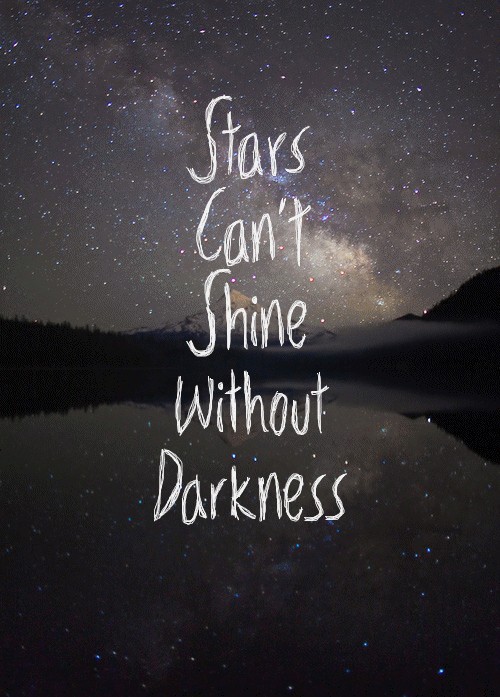
(image: PTSDscreening.org)
Trigger warning: contains descriptions of PTSD symptoms
“Don’t count the days it may take for recovery, make the days count. Seeking timely professional help boosts healing, instills hope and ensures recovery,” said 51-year-old Michael Hughes (name changed), a highly decorated firefighting veteran from New York as he stepped out of the therapy room after an intense session of trauma-focused psychotherapy. “Mental health issues are just like any other disease where recovery takes time. You need to have faith, be positive and stay strong,” he said with a smile.
Michael revealed that his job gave him post-traumatic stress disorder (PTSD) and that he got the problem from what he had seen. His 25-year stint as a firefighter with the Homeland Security and Emergency Services fetched him multiple laurels, but at a great price, which he continued to pay for years. After 22 illustrious years of service, he was diagnosed with PTSD because of which he was discharged from service.
Years of attending innumerable incidents of horrendous fire and fatal high-rise blazes gave him nightmares later. Frequent flashbacks of infernal flames engulfing entire blocks of buildings, scenes of the injured and dying being pulled out of the debris, and thick, choking clouds of black smoke adding to the mayhem became an inevitable part of his life. The impact of his job was so powerful that even watching television shows involving fire accidents would send shudders down his spine, waking him up in either cold or hot sweats.
Soon the mental agony made him feel as though the entire world was crashing down on him. Moreover, the fear of becoming an object of scorn and ridicule was so overpowering that he hesitated to express what was going on in his mind. He feared what seemed very real to him, may seem illogical or unreal to others around him. He knew that each traumatic experience of the past was gradually taking its toll on his mental health. The truth was the post-traumatic stress was wreaking havoc on the inside, while he still managed to look seemingly fine on the outside.
But it was a matter of time that he reached a stage when he completely lost all control over his emotions. Even the smallest of fire sparks or the sight of someone hurt or injured would make him upset and depressed. Nevertheless, what was controllable once, had become uncontrollable. Even the smoke coming from a cigarette would trigger a series of vivid flashbacks of a major fire accident, evoking painful memories of the past.
However, it was one ear-deafening Fourth of July, which blew the lid off. The non-stop pompous bright flashes and earth-shattering aerial fireworks all around him became unbearable. The petrifying sounds brought gut-wrenching scenes repeatedly to his mind. The ghastly flashbacks unleashed chronic unrest and panic attacks. He felt so low he contemplated his own life and what it meant. But as fate had ordered it otherwise, a well-timed intervention by his wife Amy (name changed) made him rethink his decision. “Sometimes it’s okay not to feel okay,” were the precise words she used. Her comforting words encouraged him to fight his condition by seeking support. He finally felt assured that his wife wouldn’t view his vulnerability as a disgrace.
Michael’s involvement with numerous emergency situations in both natural and man-made disasters during the course of his career compelled him to bottle up an ocean of emotions, anger, sadness, losses and grief. Finally, on hitting rock-bottom, it was in the mental health rehab that he was diagnosed with depression and anxiety, in addition to PTSD. Besides, the most important lesson which he learnt was to speak his mind. He realized that his family needed to know what he was going through so that they could help in some way or the other. Secondly, he realized that any mental problem should be viewed as a chronic mental health condition, requiring regular visits and check-ups, monitoring of treatment adherence, effectiveness and tolerability, and spreading awareness about the disorder.
The mental health specialists at the rehab, recommended Prolonged Exposure (PE), Cognitive Processing Therapy (CPT) and Eye-Movement Desensitization and Reprocessing (EMDR), in addition to a PTSD K9, to help Michael cope with his condition. Additionally, he was advised to workout with a personal trainer six days a week. Michael knew that it would take a long time to heal the scars of more than two decades, but he was confident that soon the damage will no longer be able to control his life.
Factors that prevent individuals from seeking help
“The brave men and women, who serve their country and as a result, live constantly with the war inside them, exist in a world of chaos. But the turmoil they experience isn’t who they are; the PTSD invades their minds and bodies” – this excerpt from Robert Koger’s 2013 bestseller Death’s Revenge is probably what Michael experienced during a significant chunk of his firefighting years. Apart from the existing confusion and lack of awareness, other reasons that force most individuals employed in emergency services battling similar mental conditions to not seek professional help are:
- Seeking help could lead to undesirable consequences: The fear of being denied promotions or being ignored due to the stigma surrounding mental health could be a major reason for many to keep quiet.
- Avoiding any form of discreditable dismissals: Studies suggest that being branded as mentally ill could lead to dismissal, negatively impacting the benefits of such individuals, including their chance to secure employment elsewhere.
- Being cut off from access to treatment: Postings of emergency services staff across isolated locations worldwide could be another reason.
- Screening for mental health is viewed in poor light: Popular notions of stigma, guilt and shame that surround mental disorders can prevent many individuals from seeking the required support.
- Facing problems is a manly thing: “PTSD affects only non manly men,” is one of the biggest misconceptions nurtured by most men in uniform. This attitude need to change completely or else things could blow up to devastating proportions.
Acknowledging mental disorders is the first step to recovery
Living in a socio-cultural set-up where any symptom of mental problem is viewed as a sign of weakness often tends to reinforce the stigma surrounding mental ailments. In fact, even near and dear ones, including family members, don’t seem to prioritise mental health disorders as they would other physical illnesses. According to the National Alliance on Mental Illness (NAMI), around one in five adults (approximately 43.8 million people) in the United States experiences mental health disorders in a given year. Moreover, one in 25 American adults (approximately 9.8 million) is also known to experience a chronic mental health problem, interfering with major life activities.
But the support of family members can work wonders in eradicating the stigma linked to mental health. In fact, studies suggest mental health disorders, such as depression and anxiety, have their own way of hoodwinking even the most cheerful of people into believing that their existence is good for nothing and disgraceful. It can drain energy and happiness, shatter sleep patterns, eat up vigour and vitality, disrupt concentration and hamper functioning, leaving the individual in a constant state of dejection.
Mental health professionals insist on managing mental illness just like other chronic physical health ailments like hypertension and diabetes. The need of the hour is to encourage family members to stand with their loved one’s in providing the support and strength. Acknowledging the truth that there is a serious problem, and that their loved one is fighting a battle within is the first step to recovery. In fact, it is another way to direct people to professional mental health care services.
This article was written by mental health blogger Christina Hendricks at www.mentalhealthzen.com . Featuring case studies of real people with Post Traumatic Stress Disorder.







